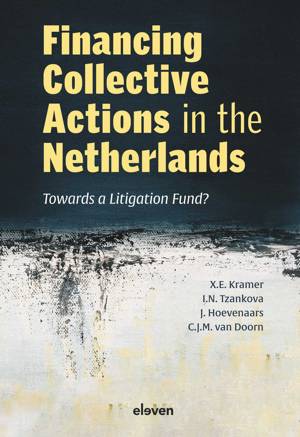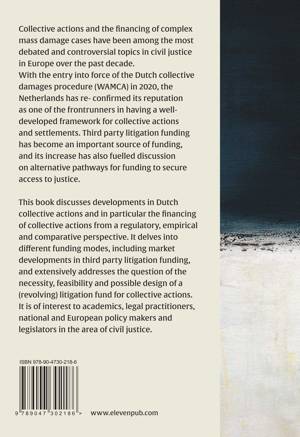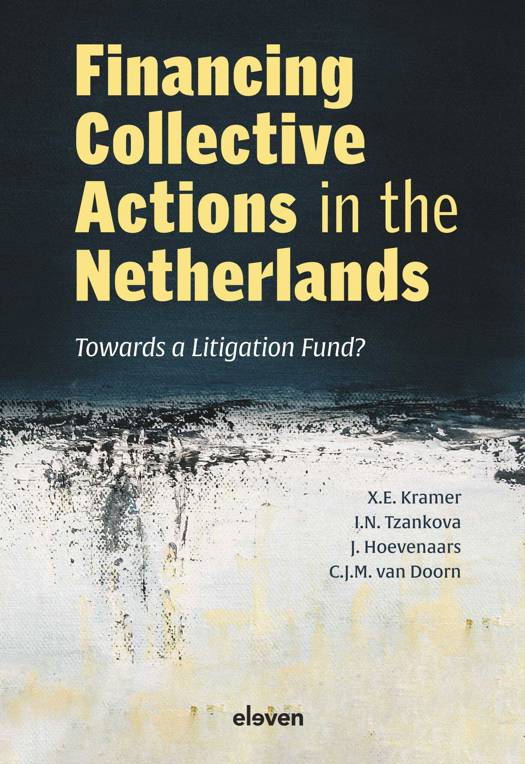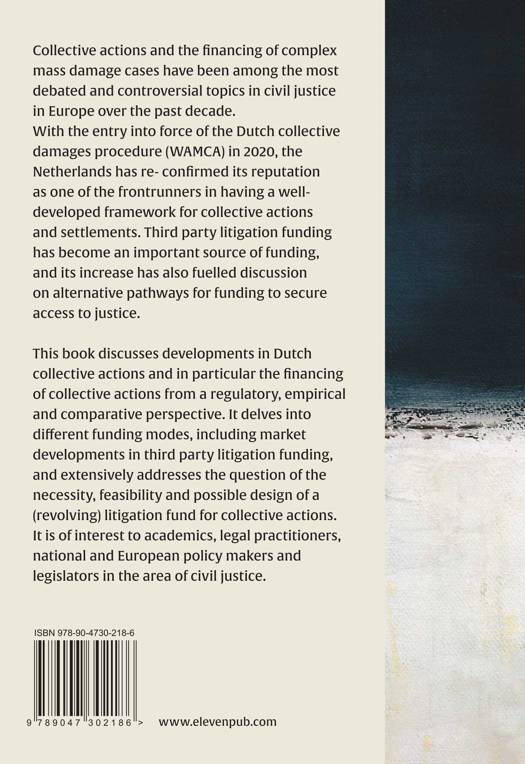
- Afhalen na 1 uur in een winkel met voorraad
- Gratis thuislevering in België vanaf € 30
- Ruim aanbod met 7 miljoen producten
- Afhalen na 1 uur in een winkel met voorraad
- Gratis thuislevering in België vanaf € 30
- Ruim aanbod met 7 miljoen producten
Zoeken


Financing Collective Actions in the Netherlands
Towards a Litigation Fund?
X. Kramer, I.N. Tzankova, J. Hoevenaars, C.J.M. van Doorn
Hardcover | Engels
€ 67,95
+ 135 punten
Omschrijving
Collective actions and the financing of complex mass damage cases have been among the most debated and controversial topics in civil justice in Europe over the past decade. With the entry into force of the Dutch collective damages procedure (WAMCA) in 2020, the Netherlands has re- confirmed its reputation as one of the frontrunners in having a welldeveloped framework for collective actions and settlements. Third party litigation funding has become an important source of funding, and its increase has also fuelled discussion on alternative pathways for funding to secure access to justice. This book discusses developments in Dutch collective actions and in particular the financing of collective actions from a regulatory, empirical and comparative perspective. It delves into different funding modes, including market developments in third party litigation funding, and extensively addresses the question of the necessity, feasibility and possible design of a (revolving) litigation fund for collective actions. It is of interest to academics, legal practitioners, national and European policy makers and legislators in the area of civil justice.
Specificaties
Betrokkenen
- Auteur(s):
- Uitgeverij:
Inhoud
- Aantal bladzijden:
- 214
- Taal:
- Engels
Eigenschappen
- Productcode (EAN):
- 9789047302186
- Verschijningsdatum:
- 8/04/2024
- Uitvoering:
- Hardcover
- Afmetingen:
- 171 mm x 246 mm
- Gewicht:
- 484 g

Alleen bij Standaard Boekhandel
+ 135 punten op je klantenkaart van Standaard Boekhandel
Beoordelingen
We publiceren alleen reviews die voldoen aan de voorwaarden voor reviews. Bekijk onze voorwaarden voor reviews.












